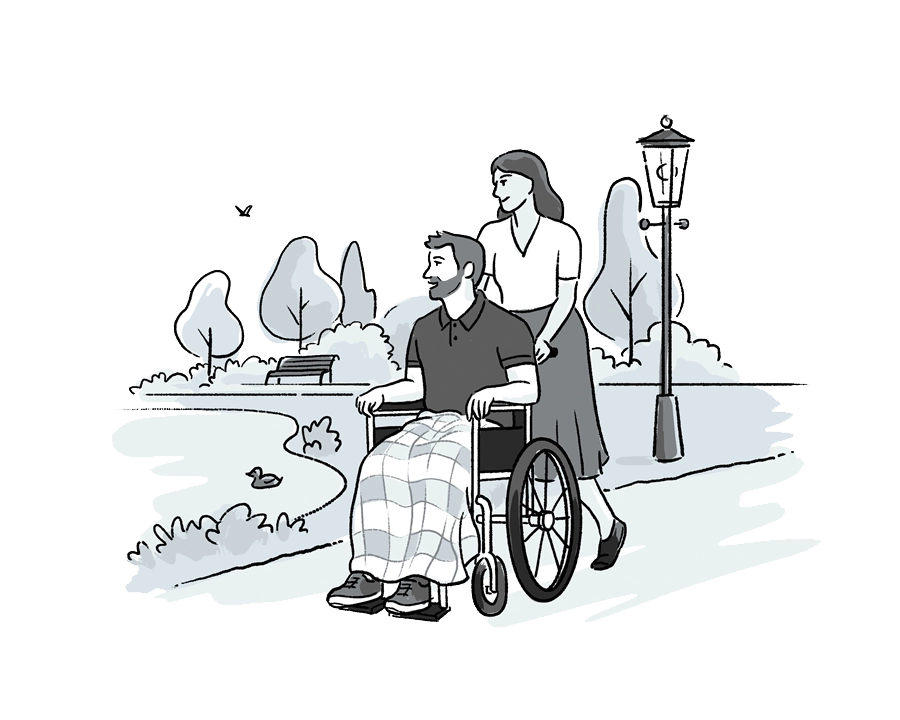Guides
Articles
What is the difference between a beneficiary, executor and trustee?
When someone writes a Will, they are instructed to name an executor to administer their estate and beneficiaries to inherit their assets. They may also appoint a trustee if necessary. It is possible for one person to be named as both an executor and a trustee, or even as all three. This article will explain what these three roles entail.
What is a Will Trust?
Will Trusts can be a confusing addition to an already complex and stressful time following the death of a loved one. This article will explain what Will Trusts are and who is responsible for dealing with them.
What is a beneficiary and what is their role?
The beneficiaries are those who receive an inheritance from someone’s estate after their death. There are three different types of beneficiary and each one has a different entitlement. This article will explain the difference between each beneficiary and any small role they might have in the probate process.
What happens to someone’s mortgage after they die?
If you owned a house with someone or lived as a tenant in their house and they recently died, you might have concerns over what will happen with their outstanding mortgage. Ultimately, it is the mortgage provider’s decision, but this can be influenced by your personal circumstances.
What happens to Premium Bonds after death?
If you are responsible for administering someone’s estate following their death and they owned Premium Bonds, you might be wondering how to deal with them. This article will explain what they are and how to administer them in line with the probate process.
Is probate required for small estates?
Following the death of a loved one, you may find yourself responsible for administering their estate and sorting out their assets. Probate refers to the legal process through which an executor can acquire legal authority to sell and distribute assets from someone’s estate in accordance with their Will.
Is it possible to make a claim on an estate during probate?
If someone close to you has died and you feel that they have not adequately provided for you in the terms of their Will, you may have a right to make a claim on the estate. Whether or not you can do this will depend on your relation to the deceased and your individual circumstances.
How to value an estate for probate.
When someone dies, their estate needs to be divided up and distributed to their beneficiaries as part of the probate process. To do this, the executor or administrator of the estate will need an accurate valuation of every asset and liability that is contained within it.
How to transfer property after death
When someone dies, any property that they left behind will need to be sold or transferred to a living beneficiary. This responsibility will either fall to the executor or administrator of their estate, or to a living tenant who still resides in their property. The person responsible and the process they must follow depends on how the property was owned and registered.
How does the involvement of a coroner affect probate?
Around 45% of all deaths in the UK are reported to the coroner for various reasons. If you are the executor or administrator of someone’s estate and the death has been reported to the coroner, you may be wondering how this will affect the probate application and process for you. This article will explain what the coroner’s role is and how the coroner’s involvement might impact the probate process.
How does probate work when there are foreign assets?
When someone dies leaving behind foreign assets, it can make the administration of their estate more complicated. If you are overseeing the administration of an estate with both assets in England or Wales and assets abroad (known as a cross-border estate) you might be wondering which country’s laws apply to the foreign assets and how best to deal with them. This is a complex topic, and we would highly recommend seeking personalised legal advice, but this article will give you an introduction.
Are estranged children entitled to claim an inheritance from their parents’ estates?
Estranged children are always entitled to claim an inheritance from their parents’ estates regardless of whether there is a Will or not. Whether this claim is successful will depend on their individual circumstances.
How does Capital Gains Tax work during probate?
Where applicable, calculating and paying Capital Gains Tax during probate is the responsibility of the executor or administrator of an estate. This article will explain what it is and how it applies during the probate process.
How to settle utility bills after someone dies?
If you are the executor of an estate, you will have a great number of tasks and responsibilities to undertake before distributing funds and gifts to the beneficiaries. If the deceased owned property, one of these responsibilities will be dealing with utilities such as gas, electricity, and water. This article will explain how to acquire final utility bills and how to settle them with the utility providers.
Is there a deadline for starting probate?
If you have recently lost a loved one and you know that you are responsible for administering their estate, but you are still grieving, you might be wondering how soon after the death you need to begin the complicated probate process.
What happens if a beneficiary dies before receiving their inheritance?
Probate is a long and complex process, meaning that the beneficiaries may not receive their inheritance for many months after the death. If you are administering an estate and one of the beneficiaries dies, you might be confused as to what happens to their inheritance. For the purposes of this article, ‘the deceased’ refers to the person whose estate is being administered.
What happens to direct debits after someone dies?
When someone dies, payments will continue to come out of their bank accounts until the bank is notified of the death. As the executor or administrator of someone’s estate, you should ensure that the bank is notified as soon as possible so that funds from the accounts are saved for the beneficiaries to inherit.
What is a Section 27 notice and how does it work?
As the executor or administrator of an estate, you are responsible for a great number of tasks involving the deceased’s assets and liabilities. One of these tasks is settling any outstanding debts. This should be done with funds from the estate, but if you fail to make it clear to the creditors that the estate administration is taking place and they make a claim after all assets have been distributed, you could be held personally financially liable for settling the debt. To protect yourself from this possibility, you should take out a Section 27 notice at the start of the probate process.
Who is responsible for making funeral plans after someone dies?
If you are the executor or administrator of an estate, you will have several responsibilities to handle following the death of your loved one. One of these responsibilities is planning the funeral. This can be done very soon after the date of death and can be paid for using funds from the estate after all liabilities have been paid. In the meantime, you may be expected to cover the cost of the funeral yourself.





